Experimental Pathology Facility
The Experimental Pathology Facility is a centralized core facility providing integrated histopathology and spatial proteomics services to support tissue-based research. The facility offers standardized, high-quality workflows, combined with expert consultation, to ensure reproducible, robust experimental outcomes.
Facility Units
The facility comprises two complementary units led by dedicated scientific staff:
Histopathology Unit
Lead: Simone Mosole
Provides comprehensive histological and immunophenotypic services, including tissue processing and embedding (FFPE and OCT), paraffin sectioning and cryosectioning, immunohistochemistry (IHC), immunofluorescence (IF), RNAscope® RNA in situ hybridization, protocol validation, slide digitization, digital image analysis support, and access to an FFPE tissue bank. The Histopathology Unit supports both routine and advanced histologic and immunophenotypic techniques, selecting and optimizing the most appropriate procedures based on experimental objectives and specimen type, including tissues, cells, organoids, animal models, and human samples.
The Facility further provides expertise in the identification and evaluation of experimentally induced lesions in animal models and human specimens, phenotyping of transgenic mouse models, and the interpretation of experimental systems by correlating animal models with their human physiological and pathological counterparts. Advanced molecular and spatial analyses are available, including RNAscope® assays for sensitive RNA biomarker detection and localization, as well as multiplexed approaches for comprehensive characterization of the tumor microenvironment in murine and human specimens.
Spatial Proteomics Unit
Lead: Tess Brodie
Provides end-to-end support for high-dimensional tissue imaging using the MACSima™ cyclic immunofluorescence platform, covering all stages of the experimental workflow. Services include consultation on experimental design and panel strategy, optimization of sample preparation for diverse specimen types, execution of cyclic immunofluorescence imaging, and implementation of data quality control procedures to ensure robustness and reproducibility. The Facility further supports downstream data analysis and interpretation, facilitating the extraction of biologically meaningful information from complex spatial datasets.
In addition, the Facility engages in tissue microarray (TMA)–based collaborative projects, offers in-house antibody conjugation services, and provides access to a curated antibody repository to support customized and multiplexed experimental designs. Together, these capabilities enable comprehensive spatial profiling of tissues and the investigation of cellular phenotypes and interactions within complex tissue microenvironments.
Integrated Workflow
The two units operate in close coordination to deliver a seamless workflow from tissue processing to spatially resolved molecular analysis. Histopathology expertise ensures optimal tissue quality and assay readiness, providing a robust foundation for downstream spatial proteomics and high-dimensional imaging studies.
Staff
Tess Brodie
Co-Lead of Experimental Pathology facility (Spatial Proteomics Unit)
Simone Mosole
Co-Lead of Experimental Pathology facility (Histopathology Unit)
Marco Coazzoli
Lab Technician
Equipment
The Experimental Pathology Facility is fully equipped to perform semi-automated processing of FFPE tissue sections, with a panel of staining procedures ranging from conventional histochemical methods to molecular characterization using standard or customized antibodies in immunohistochemistry. Processed samples can be digitally acquired and stored for image processing and morphometric analysis with an Aperio AT2 pathology digital scanner.
Leica Histocore Pearl
The HistoCore PEARL tissue processor provides reliability with a new retort design, and allows safe and reliable conventional processing with a 200 cassette per run capacity.
Leica Histocore Arcadia H+C
The HistoCore Arcadia modular tissue embedding system offers the flexibility to arrange the embedding workflow allows for simple operation and precise control; resulting in a smooth workflow, reliability and speed of the embedding work.
Leica RM2265
Leica RM2265 microtome deliver superior sectioning across a spectrum of specimen types, from soft to hard, and spanning routine biomedical research to specialized applications.
Leica Aperio AT2
The Aperio AT2 is designed with an autoloader capacity for up to 400 slides, minimizing glass movement and manipulation, keeping the slides safe and delivering an unparalleled time-to-view speed and high quality digital slides.
MACSima
The MACSima™ is a fully automated imaging system based on fluorescence microscopy. It operates through iterative cycles of stainings, sample washing, multi-channel image acquisition and signal bleaching. These cycles allow to obtain a quantity (theoretically up to 400 markers versus 4/5 markers for a manual IF) and quality (standardization and less variability) of data that is significantly superior to classic IF protocols, without affecting the structural integrity of the samples in analysis (FFPE, adherent cells, suspension cells, organoids).
Facility Acknowledgement
Please acknowledge the Experimental Pathology Facility in any scientific publication or oral presentation for which data was generated with the use of our equipment, our services, or with the help of our staff’s expertise.
To demonstrate that the equipment in the Facility is used to generate publishable results, please send us a copy of your publication that includes data obtained from the use of our Facility.
Co-authorship
If a member of the Facility has made a significant intellectual contribution to your publication beyond routine sample analysis, you should consider co-authorship.




